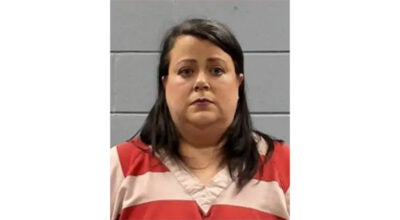At least two Mississippi district attorney say they won’t prosecute people over abortion
Published 5:10 pm Wednesday, July 6, 2022
Following the U.S. Supreme Court decision to overturn a federal right to abortion, two Mississippi district attorneys say they will not prosecute those who seek, provide or help someone obtain an abortion.
Hinds County District Attorney Jody Owens and District Attorney Shameca Collins, who represents the sixth district for Adams, Amite, Franklin and Wilkinson counties, signed a joint statement published by Fair and Just Prosecutions.
They join 90 district attorneys and state attorneys general from 31 states who pledged to use discretion not to criminalize personal healthcare decisions. With the overturn of Roe v. Wade, individual states can decide how to legislate abortion.
“All members of our communities are our clients – they elected us to represent them and we are bound to fight for them as we carry out our obligation to pursue justice,” prosecutors said in the June 24 statement. “Our legislatures may decide to criminalize personal healthcare decisions, but we remain obligated to prosecute only those cases that serve the interests of justice and the people.”
Prosecutors said enforcing abortions bans goes against obligations and interests they are sworn to uphold. They also said it will wear down trust in the legal system, take resources away from prosecuting other crimes, retraumatize victims of sexual violence and hinder prosecutors’ ability to hold people accountable for sexual violence.
Collins, elected in 2019 and whose office is in Natchez, did not respond to a request for comment. Owens, also elected in 2019 and whose office is in Jackson, was not available for comment.
Other district attorneys who signed the joint statement represent major cities in the South including Atlanta, Austin, Birmingham, Dallas, Durham, Nashville, New Orleans and San Antonio.
Mississippi is one of 26 states that have or are poised to ban or restrict abortion in most circumstances following the Supreme Court decision, according to the Guttmacher Institute, a reproductive health research and policy organization. Most of those states are in the South.
The state is also one of 13 with trigger laws that can go into effect now that Roe v. Wade has been overturned, according to the Guttmacher Institute. Under those laws, people who seek abortions or those who perform them can face felony charges and prison time.
In Mississippi, a 2007 trigger law will outlaw abortion with two exceptions: when the mother’s life is in danger or a rape has been reported to law enforcement.
Anyone who performs an abortion here, other than the pregnant person, can face between one and 10 years in prison, according to state code.
Mississippi’s trigger law is set to take effect this week after Attorney General Lynn Fitch certified the law June 27.
A day after the law certification, the Jackson Women’s Health Organization – Mississippi’s only abortion clinic and the subject of the case that resulted in the Roe decision – filed a lawsuit that argued the trigger law is invalid because of a 1998 state Supreme Court decision said abortion is protected under the state constitution.
After a Tuesday hearing, Judge Debbra Halford denied the clinic’s request to block Mississippi’s trigger ban from going into effect.
Not all of the prosecutors agree about abortion on a personal or moral level, but they said in the joint statement they stand together because they have a responsibility not to use the criminal legal system against people for their medical decisions.
“Criminalizing abortion will not end abortion; it will simply end safe abortions, forcing the most vulnerable among us — as well as medical providers — to make impossible decisions,” the prosecutors said.
By Mina Corpuz, Mississippi Today






